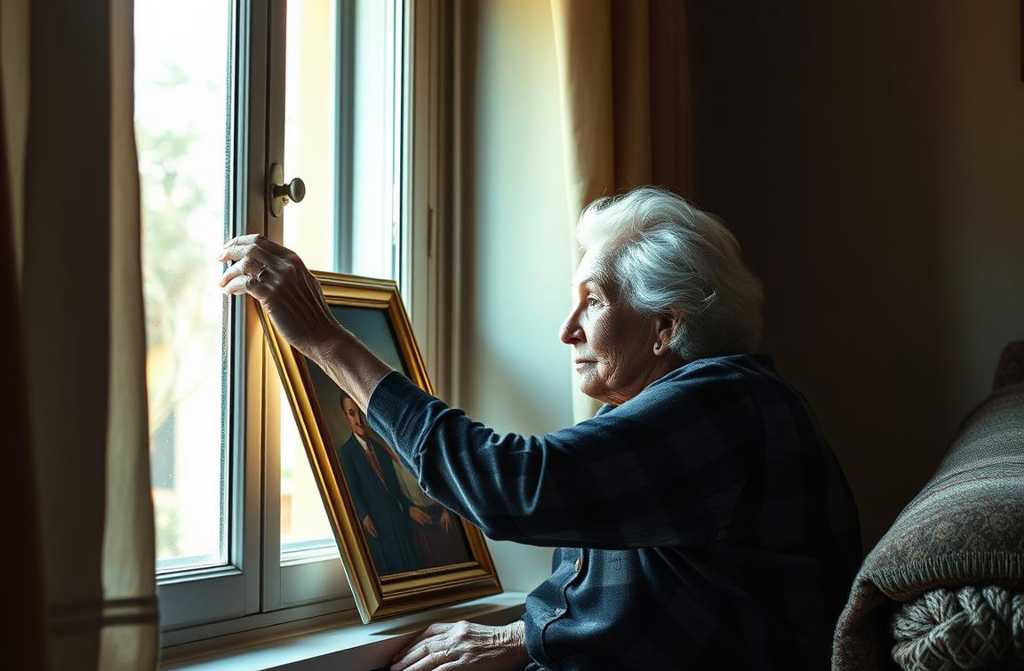At seventy, I realized the most terrifying thing isnt an empty houseits a full one filled with people who no longer need you.
“You bought the wrong bread again,” snapped my daughter-in-law, Kate, as I unpacked the shopping bags in the kitchen. “I specifically asked for sourdough. This is the fifth time Ive reminded you.”
She picked up the loaf Id brought and turned it over in her hands as if it were some poisonous insect.
“I forgot, love. Sorry. Its been a busy day,” I murmured.
“Youre always *busy*, Margaret,” she sighed. “Now weve got to eat this. James could have an allergy.”
She tossed the bread onto the counter like she was doing me a favour by not binning it outright.
I swallowed hard. My grandson James was six, and hed never had an allergy to plain bread in his life.
My son, Thomas, poked his head into the room.
“Mum, have you seen my blue jumper?”
“Yes, love. Its in the wash. I did it yesterday”
“Why?” He didnt let me finish. “I was going to wear it today! Honestly, Mum!”
He vanished, leaving behind that exasperated *honestly, Mum* that stung worse than a slap. Id washed his clothes. Id cared. And yet, somehow, I was still the one at fault.
I walked slowly to my room, passing the living room where Kate was already on the phone, laughing loudly with a friend about how “Mums lost the plot again.” The laughter was as sharp as her words.
My room was the only safe place left in this big house that had once been so warm. Now it just hummed like a beehiveconstant chatter, childrens shouts, the telly blaring, doors slamming. Noisy. Crowded. And achingly lonely.
I sat on the edge of my bed. All my life, Id been terrified of being alone. Id feared the day my children grew up and left, leaving me in empty rooms. How foolish Id been.
It took me until seventy to realize the worst loneliness isnt an empty houseits a full one where no one truly sees you.
You become a free add-on. A walking function thats always malfunctioning. Fetch this, wash thatbut only *exactly* as they say. One wrong move, and youre in the way, irritating, tripping them up.
That evening, I tried again.
“Tom, could we talk?”
“Mum, Im *working*. Cant you see?” he muttered, eyes fixed on his laptop.
“I just wanted”
“Later, yeah?”
*Later* never came. He and Kate had their own lives, their own plans, their own conversations. And I was background noise. Like an old sofa, or a lamp theyd grown tired of. Present, but not really.
A knock at the door. It was James.
“Nana, will you read to me?”
My heart leapt. There he wasmy little light. The only one who
“James!” Kate appeared instantly. “I told you, dont bother Nana. Its tablet time.”
She took the book from him and led him away.
And there I sat, staring at the closed door. In that moment, I knew I couldnt be just the backdrop anymore. Something had to change. Or Id fade into these walls like a ghost.
The decision didnt come at once. It brewed for days as I washed dishes, did the shopping, and endured the little jabs.
It hardened when I found my nearly untouched shepherds pie in the bin*too greasy, were on a diet.*
I started small. With my own space.
On Saturday morning, while the house still slept, I pulled out boxes of my late husbands thingshis books, his tools, old photos. I spread them across the dining table, determined to make a little memorial corner. Hang his portrait.
Kate was the first downstairs. She froze in the doorway as if shed seen a rat.
“Whats all this?”
“Good morning, Kate. Just sorting through some things.”
“I can see that. Couldnt you do this in your room? Youve made the whole place a mess. Weve got guests coming today, in case you forgot.”
“This is my house too,” I said quietly but firmly, surprising myself. “And these are your father-in-laws things. Thomass dad.”
Kate snorted and stomped to the kitchen, slamming the kettle down. Within minutes, Thomas appeared, drawn by the coffee and the mutiny.
“Mum, whats all this? Kate says youve cluttered up the place.”
“I just wanted to hang your fathers portrait. Right here.” I pointed to the wall.
“*There?*” He glanced at the wall, then at me. “Have you lost it? Weve got a modern aesthetic going. Kates picked out a designer mirror for that spot.”
Ah. A mirror. Designer. More important than his own fathers memory.
“Tom, this is *my* home.”
“Oh, here we go,” he rolled his eyes. “Always with the *my house* rubbish. *We* live here too, you know! *We* paid for the decor!”
*Decor*meaning one lime-green feature wall in the kitchen. That was it.
“Thats why I want this to stay a *home*, not a showroom for designer mirrors.”
That evening came the big talk. They sat me down with rehearsed solemnity.
“Mum, weve been thinking,” Thomas began carefully. “This house is too big for all of us. The bills are mad, and its a nightmare to clean.”
Kate jumped in, her eyes wide with fake concern.
“Were just worried about you, Margaret. Itll be so hard for you when we move out.”
A chill ran down my spine.
“And where exactly are you moving to?”
“We want to sell the house,” Thomas blurted. “Buy ourselves a nice new-build flat. And one for you tooa little one-bed. Cosy. *Yours.*”
I looked between them. They werent joking. Theyd already decided. Already divided the money in their heads. *My* money. *My* home. *My* life.
“Sell my house?”
“Why is it suddenly *yours*?” Kate smirked. “We live here too. Weve contributed. Or do you expect us to wait on you forever in this mausoleum?”
I stood up. My legs felt like jelly, but I straightened.
“No.”
“What do you mean, *no*?” Thomas frowned. “Mum, this is best for everyone.”
“I said no. This house isnt for sale. *Ever.*”
I looked him dead in the eye. There was no warmth therejust annoyance and cold calculation. The loving-family mask had slipped. I wasnt just a burden. I was an *obstacle* to their bright future. And they were ready to sweep me aside.
My *no* hung in the air. Thomas flushed. Kate went pale, lips pressed tight.
“You dont understand,” he hissed. “This isnt a request. Weve already called an estate agent.”
“Cancel them,” I said calmly. My hands shook, but I held firm.
“Youll *love* your little flat!” Kate shrieked. “Stop ruining our lives with your nonsense!”
“Kate,” Thomas warned, then turned back to me. “Mum, how can you do this to us? To your own son? Im trying to provide for my familyfor your *grandson!*”
A cheap shot. But it didnt work anymore.
“James will visit me *here*. In his grandmothers home. Not some soulless new-build bought by erasing his grandfathers memory.”
Kate shot up. “Oh, I see! So were nothing to you? Weve helped you all this time, and now youre kicking us out?”
I looked at herreally lookedand for the first time in years, I didnt feel like a frightened shadow. I felt like the mistress of my own home.
“You said it, Kate. Not me.”
The next few days were hell. They stopped speaking to me. Not just ignoringthey created a vacuum around me. Silent meals. Doors slammed in my face. Meals cooked for two. They were trying to starve me out.
But theyd miscalculated. I wasnt afraid of emptiness anymore. I *craved* it.
On Friday, I made my move. That evening, as they watched telly in the lounge, I walked in and placed two plane tickets on the table.
Thomas blinked. “Whats this?”
“Tickets. For you. To Manchester. Next Saturday.”
Kate snatched them up. “Youre *kicking us out?*”
“Im giving you what you wantedyour own life. Without me. Without this *old house.* Ill even help







